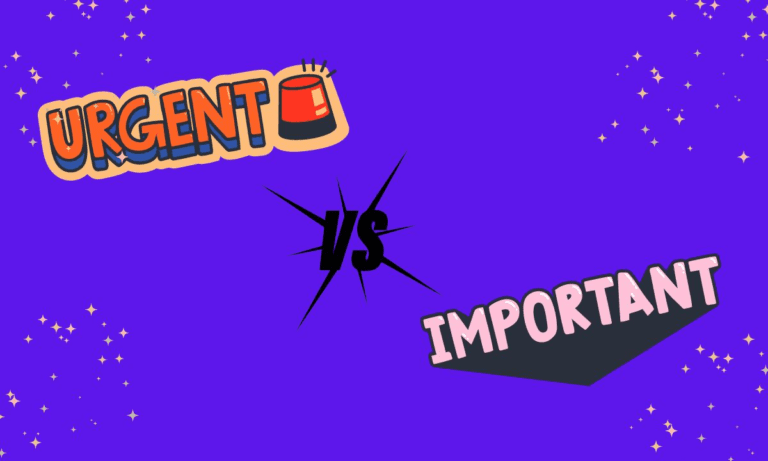Time Management Coach: How To Have A Productive Life In 21st Century

Time is an invaluable resource, often referred to as the “currency of life”. Once spent, it can never be regained. Hence, effective management of this precious commodity is essential for leading a successful and balanced life. In our fast-paced world, where work, personal commitments, and leisure activities compete for our attention, managing time effectively becomes even more critical.
This is where a time management coach comes in. While it’s quite commonplace for individuals in business to seek guidance from mentors or a business coach, the concept of a time management coach isn’t as widely recognized. They are experts in teaching people how to use their time wisely, providing strategies and techniques to manage time effectively, and ultimately improving the overall quality of life.
The Role of Technology in Time Management
Technology plays a significant role in time management in today’s digital age. With a myriad of productivity tools and apps available, technology has made it easier than ever to manage our time effectively. Here’s how:
Digital Calendars and Schedulers
Digital calendars and schedulers are some of the most commonly used tech tools for time management. They allow you to schedule your tasks, meetings, and events, set reminders, and even share your calendar with others. This not only helps you keep track of your commitments but also ensures that you’re aware of your available time slots for new tasks.
Time Tracking Apps
Time tracking apps like Toggl, Clockify, and RescueTime help you understand where your time is going. By providing a detailed breakdown of how you spend your time, these apps can highlight areas where you might be wasting time or could be more efficient. This insight allows you to make informed decisions about how to better manage your time.

Task Management Tools
Task management tools such as Asana, Trello, and Todoist allow you to organize your tasks into lists or boards, set deadlines, and prioritize tasks. These tools provide a clear overview of what needs to be done and when, helping you stay on top of your tasks and deadlines.
Automation Tools
Automation tools can handle repetitive tasks, freeing up your time to focus on more important and complex tasks. For example, tools like Zapier or IFTTT (If This Then That) can automate tasks like sending emails, backing up files, or updating your CRM.
Communication Tools
Communication tools like Slack, Microsoft Teams, or Google Hangouts can save time by streamlining communication and collaboration within teams. These tools allow for instant messaging, video conferencing, and file sharing, reducing the time spent on back-and-forth emails.
AI-Powered Assistants
AI-powered assistants like Google Assistant, Siri, or Alexa can help manage your time by setting reminders, scheduling appointments, sending messages, or even providing traffic updates for your commute.
Overall, technology offers various tools to assist with time management. However, it’s important to remember that these tools are only effective if used correctly. It’s essential to choose the right tools that fit your needs and work style, learn how to use them effectively, and regularly review your usage to ensure they’re helping you manage your time better.
Overcoming Common Time Management Obstacles

Time management is a crucial skill, but various obstacles can hinder its effective practice. Here are some common time management obstacles and strategies to overcome them:
Procrastination
Procrastination is often the result of feeling overwhelmed by a task’s size or complexity. To overcome this, break down large tasks into smaller, manageable parts and start with the easiest part. This makes the task less intimidating and helps build momentum.
Lack of Prioritization
Without clear priorities, it’s easy to spend too much time on less important tasks. Use tools like the Eisenhower Matrix to categorize tasks based on their urgency and importance. This helps you focus on tasks that truly matter and contribute to your goals.
Distractions
In today’s digital age, distractions are everywhere. To manage distractions, set specific times for checking emails or social media instead of responding to every notification immediately. Consider using apps that block distracting websites during work hours.
Multitasking
Despite popular belief, multitasking can reduce productivity as it divides your attention and leads to mistakes. Focus on one task at a time, and only move onto the next task once you’ve completed the current one.
Poor Planning
Without a plan, your day can easily be taken over by ad-hoc tasks. Start each day by creating a to-do list and schedule. This gives you a clear idea of what needs to be done and allows you to manage your time effectively.
Overcoming these obstacles requires self-awareness, discipline, and the right strategies. Remember, effective time management is a skill that takes time to develop. Be patient with yourself and make adjustments as needed to find what works best for you.
Time Management and Mental Health

Effective time management is not only crucial for productivity, but it also plays a significant role in maintaining mental health. Here’s why:
Reduces Stress
Poor time management can often lead to stress as you rush to meet deadlines or find yourself overcommitted. By effectively managing your time, you can ensure a balanced workload and avoid the last-minute rush, thus reducing stress levels.
Enhances Self-Esteem
Completing tasks on time can give you a sense of accomplishment, boosting your self-esteem. It reinforces the belief in your abilities and increases your confidence to take on new challenges.
Improves Work-Life Balance
Effective time management helps you to define clear boundaries between work and personal life, ensuring that neither one is neglected. This balance is crucial for mental well-being as it prevents burnout and allows time for relaxation and rejuvenation.
Provides Control
Managing your time effectively gives you a sense of control over your life. Knowing what needs to be done and when reduces feelings of chaos and overwhelm, leading to better mental clarity and focus.
Fosters Healthy Habits
Good time management often involves planning for regular exercise, adequate sleep, and healthy eating – all of which are essential for mental health.
In conclusion, effective time management contributes significantly to mental health. By reducing stress, enhancing self-esteem, improving work-life balance, providing control, and fostering healthy habits, it promotes overall mental well-being.
The Role of a Time Management Coach
What does a Time Management Coach do?
A time management coach plays multiple roles. They act as a mentor, guide, and specialist in time management coaching sessions helping individuals maximize their potential by making the best use of their time. They analyze your current time usage patterns, identify areas where you’re wasting time or could be more efficient, and help you develop a customized plan to improve your time management skills.
They also provide practical tools and techniques, such as time blocking, goal setting, and prioritization, to help you better manage your time. Moreover, they hold you accountable, ensuring you stay committed to your goals and make consistent progress. They’ll encourage you to reflect on how you spend your time, challenge your assumptions about what’s truly important, and guide you towards more productive habits.
Benefits of Working with a Time Management Coach
Working with a time management coach offers numerous advantages. They provide an objective perspective on your habits and routines, allowing you to recognize patterns and behaviors that may be hindering your productivity.
By developing effective time management strategies, you can reduce feelings of being overwhelmed, increase your business efficiency, and improve your work-life balance. This not only enhances your professional success but also contributes to personal satisfaction and happiness. You’ll have more time for hobbies, relaxation, and spending quality time with loved ones. In essence, a time management coach helps you not just to manage your time better, but to create a life that is fulfilling and well-rounded.
The Impact of Poor Time Management

The Consequences of Inefficient Time Use
Poor time management can lead to a multitude of problems. From feeling constantly overwhelmed and struggling to focus, to missing deadlines and underperforming at work, the consequences can be severe.
This often leads to increased stress levels, decreased productivity, and a sense of underachievement. You may find yourself stuck in a cycle of procrastination, where you delay tasks until the last minute, leading to poor quality work and unnecessary stress. Over time, this can damage your reputation, strain your relationships, and even impact your health.
The Effects on Personal Life and Work-Life Balance
Ineffective time management doesn’t just affect your work life; it can also have a significant impact on your personal life. Without proper time management, you may struggle to maintain a healthy work-life balance, leading to burnout and strained relationships.
You might find yourself unable to make time for family, friends, hobbies, or self-care, which are crucial for overall well-being. This imbalance can lead to health issues, both mental and physical, and can affect your overall quality of life. It can rob you of the joy and satisfaction that comes from pursuing a hobby, spending relaxed time with loved ones, or simply having some quiet time alone.
How Time Management Coaching Works

The Coaching Process
Time management coaching is a collaborative and personalized process. The coach works closely with you to understand your goals, identify challenges, and develop a personalized action plan. They provide ongoing support, motivation, and personal accountability throughout, helping you stay on track and make consistent progress towards your goals.
During coaching sessions, you’ll learn to tackle time-wasting habits, overcome procrastination, and develop a mindset that promotes productivity. The coach will also help you establish realistic, achievable goals and create a roadmap to achieve them. They’ll provide tools and resources, as well as personal support such as continuous feedback, to ensure you’re making progress and adjusting your strategies as needed.
Time Management Strategies
Time management coaches employ a variety of strategies tailored to the unique needs and preferences of each client. These might include time blocking, where specific blocks of time are allocated for different activities throughout the day; prioritizing tasks based on urgency and importance; setting realistic goals; and learning to delegate tasks when necessary.
The coach will guide you on how to implement these strategies, refine them to suit your unique needs, and adjust them as necessary to ensure you’re continually improving. They’ll also teach you how to use various tools and apps that can aid in effective time management. They’ll help you understand how to break down large projects into manageable tasks and priorities, how to avoid distractions and stay focused, and how to make the most of your peak productivity hours.
The Benefits of Time Management Coaching

Improved Productivity and Efficiency
One of the most compelling benefits of time management coaching is improved productivity. With better time management, you can accomplish more in less time, reducing feelings of stress and overwhelm. It can also boost your efficiency, allowing you to achieve your goals faster and with less effort.
Increased productivity and efficiency can lead to better performance at work, leading to opportunities for career advancement. It can also give you more free time to spend on leisure activities or with loved ones, enhancing your personal life. You’ll find that with effective time management, you can achieve more than you thought possible, both professionally and personally.
Achieving Work-Life Balance
Effective time management is key to achieving a healthy work-life balance. By learning to manage your time more effectively, you can ensure that you’re dedicating sufficient time to both your professional responsibilities and your personal life. This can lead to increased job satisfaction, improved relationships, and a better quality of life.
Achieving a work-life balance isn’t about rigidly dividing your time between work and personal activities. Instead, it’s about finding a rhythm that allows you to feel fulfilled and content in both areas of your life. A time management coach can provide the tools and guidance to help you find this balance.
Tips and Techniques from Time Management Coaches
Techniques for Better Time Management
Time management coaches often recommend various techniques to improve their time management to clients. For instance, time blocking involves scheduling specific blocks of time for different activities, which can help prevent multitasking and improve focus. Goal setting involves defining clear, achievable goals and developing a plan to reach them. Prioritization involves determining which tasks are most important and focusing on those first.
To implement these techniques effectively, it’s important to understand your own working style and preferences. Some people might prefer a highly structured schedule with every minute planned out, while others might prefer a more flexible approach with room for spontaneity. A good coach will tailor their advice and strategies to suit your individual needs and preferences.
How to Implement These Techniques
Implementing new, time management tips and techniques can be challenging, particularly if you’re used to a certain way of doing things. However, a time management coach can provide guidance and support throughout this process.
They can help you develop a realistic plan, provide feedback on your progress, and offer suggestions for improvement. They can also help you navigate any obstacles you encounter and stay motivated even when progress seems slow.
With their help, you can start to see improvements in your time management skills and begin to work smarter and to reap the benefits in your daily life.
Common Misconceptions About Time Management
While time management in business is widely recognized as a crucial skill, there are several misconceptions that can hinder effective time management. One such misconception is the belief that being busy equates to being productive. However, it’s crucial to understand that productivity is about accomplishing tasks efficiently, not about being constantly busy.
Another common misconception is that time management means packing as much as possible into your day. In reality, effective time management is about prioritizing tasks and focusing on what truly matters, rather than trying to do everything.
A time management coach can help debunk these misconceptions and guide you towards a more realistic and effective approach to managing your time.
The Psychology Behind Time Management
Understanding the psychology behind time management can be instrumental in improving your time management skills. For instance, understanding why we procrastinate and how to overcome it, the role of motivation in time management, and how our perception of time affects our ability to manage it effectively are all crucial aspects of time management.
A time management coach, with their knowledge and expertise, can provide insights into these psychological aspects, helping you understand your behavior and develop strategies to manage your time more effectively.
How to Choose a Time Management Coach
Choosing the right time management coach is crucial for your journey towards better time management. Look for a good time management coach who has a proven track record, good client testimonials, and a coaching style that resonates with you.
It’s also important that the coach understands your specific challenges and goals. A good coach will provide a personalized approach, tailoring their own coaching program to your individual needs and preferences.
Evaluating Your Progress
Evaluating your progress is an essential step in effective time management. It allows you to assess whether your strategies are working and make necessary adjustments. Here’s how you can do it:
Consistent Tracking
Track your tasks and the time you spend on them consistently. This data provides a clear picture of where your time is going and whether it aligns with your priorities.
Review Your Goals
Regularly review your short and long-term goals. Are your daily activities moving you closer to these goals? If not, it might be time to reassess your tasks and priorities.
Assess Task Completion
Take note of the tasks you consistently complete vs. those that remain unfinished. If certain tasks are always left undone, it might indicate a need for more time, resources, or a different approach.
Reflect on Your Productivity
Consider your productivity levels at different times of the day. If you notice patterns (like being more productive in the mornings), adjust your schedule accordingly to make the most of your peak productivity times.
Seek Feedback
Don’t hesitate to seek feedback from others. They can provide valuable perspectives on your efficiency and effectiveness.
Use Tools
Many time management tools provide built-in analytics that can help evaluate your progress. These insights can guide your future strategies.
Remember, the purpose of evaluating your progress isn’t to judge yourself harshly, but to learn and improve. Be patient with yourself and celebrate small victories along the way.
Conclusion
In conclusion, a time management and productivity coach can play a pivotal role in helping you improve your time management skills, boost your productivity, and achieve a better work-life balance. If you’re struggling with time management, consider seeking the help of a coach.
With their expertise and support, you can learn to manage your time more effectively, overcome the challenges of time management, and start living a more balanced and productive life. Remember, the journey to effective time management is a gradual process, but with patience, persistence, and the right guidance, it is certainly achievable.
You might also be interested in some of my other posts below
- Blogging ideas for beginners
- Quillbot review
- More about books
I also write at Medium.





